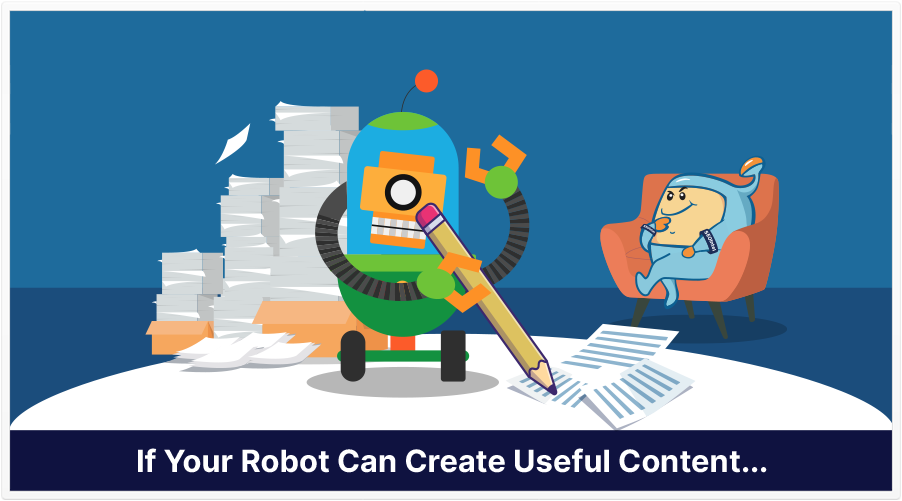
I think we all know that Google likes–and needs–content.
In essence, that’s really what searchers are looking for.
And if you’ve been in the SEO game for a while, you’ve probably heard that ‘Content is king.’
There’s a consensus that the more content you have–both qualitatively and quantitatively–the more pages you can have indexed in Google, and the more visitors your site can have.
(This is, of course, with all other variables being equal.)
So, I think most agree that content is valuable.
But, content can take time to generate. The thought of sitting down to write 1300-word articles, day after day, can be a major turnoff for some.
So, for years, people have been looking for ways to mitigate that process–and some of these ways are more legitimate than others. People have done things ranging from writing their own content, hiring other writers, using guest bloggers…all the way to the unethical practices of stealing/scraping content.
Others have also tried to use article spinning tools.
Nowadays, AI content generation is probably one of the newer iterations of content generation.
And, in and of itself, it’s neither good nor bad.
Google’s John Mueller was recently asked about this (during the English Google SEO Office-Hours From November 5, 2021):
His response was:
“With regards to automatically generated content, I feel like this is a topic that has actually been around for a really long time, because it’s like there have just been so many different ways of generating content automatically, and some of it is used in useful ways, and some of it is used in really spammy ways.”
How Google May See Some of This Content
“But for the most part, we’ll look at it and say, ‘Oh, this is really low-quality content.’ And we’ll see that these pages don’t collect signals the way that normal pages do.
“And because of that, we’ll basically say, ‘Oh…well…we’ll kind of ignore this. And if, from our guidelines, it is the case that if it’s automatically generated content, it should be blocked by robots, for example. But my feeling is at some point that is going to shift a little bit in the sense that we’ll focus more on the quality rather than how it was generated.”
This is a good point, because really, what matters is how useful the content is, not how it was generated. If an AI system can create sensible, grammatically-correct helpful content as well as a good human writer can, then that’s great!
“And that’s something where I could imagine that there might be some setups for automatically generated content, where you can actually create something that is fairly useful, where, based on maybe the input data that comes in, it’s actually something that is useful for people.”
An Example of Human-and-Auto-Generated Content
“So I know, for example, I think in the US, some of the news sites use feeds from the different geological institutes for earthquake detection.
“And they will automatically generate a news article if they see that one of these feeds says, ‘Oh, there was an earthquake in this big city.’ And they will take this automatically-generated content and publish it initially, because it’s like, ‘As soon as possible, get the information out there.’
“But they’ll also have people who go in and actually create something useful on top of that. So some mix of automatically-generated content and human-curated content, I imagine, will become normal.
“But we’ll continue to have the really low-effort automatically generated content as well, where people just say, ‘Oh, I want to target this keyword. Give me five paragraphs of text, and make it look like it’s written in English.’
“And like a normal person looks at it and reads through it and says, ‘This doesn’t make much sense,’ or ‘These sentences don’t fit together.’
And this kind of low-effort content I think will continue to be something that our systems will try to recognize as low quality, maybe spam, and treat appropriately.
And in the end, if it’s low-quality content, it doesn’t matter if it was written by a person or by a machine, it’s not that useful for people.
So, in the end, it has to be quality content that people can read and find useful.